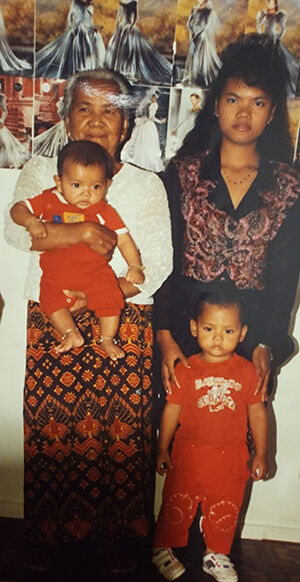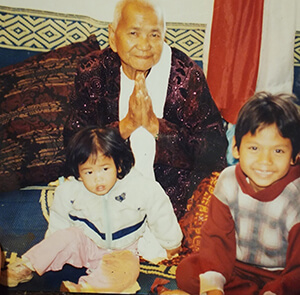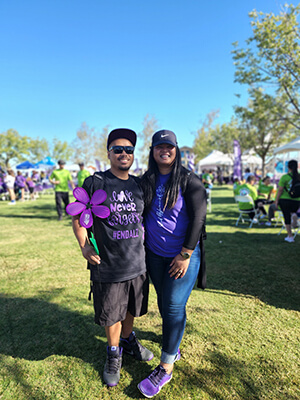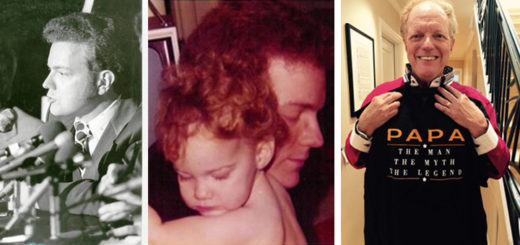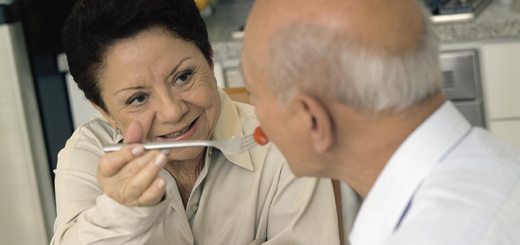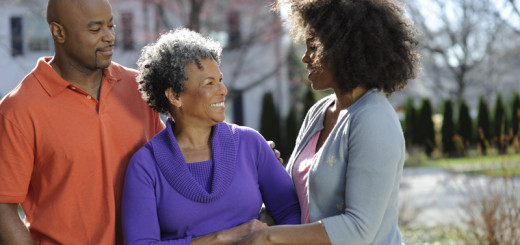Cambodian woman finds purpose in caring for great grandmother with dementia
At the young age of 13, Paula Pov was spending her time at home caring for her Cambodian great grandmother who had dementia. Through this experience, she found her calling. More than 20 years later, Paula helps provide care for older adults at a local care setting in Fresno, California. Paula encourages other members of the Asian American Pacific Islander (AAPI) community to ask for help and use the resources available.
Escaping genocide
Un Sao moved from Cambodia to the United States with her adult granddaughter in the 1980s. After surviving the Cambodian genocide in the 1970s they found themselves living in the middle of a country at war. The women escaped to the United States in the hopes of finding a better, more peaceful, life.
Originally moving to Arizona, they lived there for roughly three years before finding a home in Fresno, California. There the women continued to live together even after her granddaughter started her own family, having six children over the next decade.
California is home to the largest population of Cambodians in the United States. According to the U.S. Census, approximately 6,700 live in Fresno County, making it the fifth largest concentration in the state.
Un loved to cook and tend to their extensive garden making sure the fruit, flowers and crops were always tended to. “[My great grandmother] was so cheerful and kind,” said Paula Pov, Un’s eldest great granddaughter. “We lived in a multi-generational home; she was always with us. She loved listening to cultural music and sharing the history and knowledge she had regarding our country and music.”
Growing up fast
In the early 90s Un’s personality began to change. Being a child, Paula didn’t think too much of it. However, Un became very anxious, pacing around the house and wandering about. The only way to calm her down was to play music.
It wasn’t until Paula was 13 years old that she started to understand what was happening with her great grandmother; she was showing signs of dementia. “I was young I didn’t realize what my grandmother had until I was older,” said Paula.
At this time, Paula’s mother was not only a single mother but also the sole income earner for eight people, including herself. This meant that the children had to pitch in and help provide care for Un. “Essentially, we were all [caregivers] – as we were young, we’d have shifts, we would watch her for two hours. [My great grandmother] needed to be watched all day.
“I made sure great grandma was well kept throughout the day. I made sure she made it to the toilet, took a shower, and that there was food for her and also for my [younger] siblings. It made me grow up and learn about adulthood pretty quickly.
“As a family we overcame the challenge with [great] grandma, and we were able to bond more closely. She was the glue and the knot to our whole family.”
Finding her calling
Because it was the late 1990s, there weren’t many cultural resources or information easily available for Asian families. While Un was formally diagnosed with dementia, there wasn’t anything more the family could do outside of what they were already doing. The family did their best to keep her in the home and comfortable until she died.
Paula found that she enjoyed providing care for her great grandmother and it was something she was good at. Because of this Paula decided to pursue caring for older adults as a career. One of her first jobs was at a local care setting. While working there, Paula went to school and became a Certified Nursing Assistant (CNA) and later earned a bachelor’s degree in health care administration.
Today, Paula is the Member Support program manager at a retirement community in Fresno. There, she manages everything related to the residents and their staff caregivers.
Asking for help
According to the Alzheimer’s Association more than half (56%) of Asian Americans believe that significant loss of memory or cognitive (such as thinking or learning) ability is a normal part of aging. In both her personal and professional experience, Paula has seen this firsthand.
“Most Cambodians have a lack of knowledge with the disease,” said Paula. “Once someone is diagnosed, people don’t know how to find resources or help. As a culture we’re not as educated [on the disease]. There is a lot of unknowns on how to care for someone and to understand what is going on for the person as well.”
Paula also believes that in the AAPI community asking for help is not socially acceptable and it makes a person appear vulnerable. “Don’t be afraid to ask for help or resources,” encourages Paula. “There are resources out there and you don’t know what’s available until you ask.
“Every person goes through the disease differently and it impacts your loved one differently as well. Be open to [the disease] and not in denial of it. Once you’re open to it, you can see how the disease can flourish into someone. There might be moments of sadness and frustration but [you may] find peace in it. There will be a lot of triumph [when you can] live with it and understand it.”
For more information dementia in the Asian American and Pacific Islander resources visit alz.org/asianamericans.





